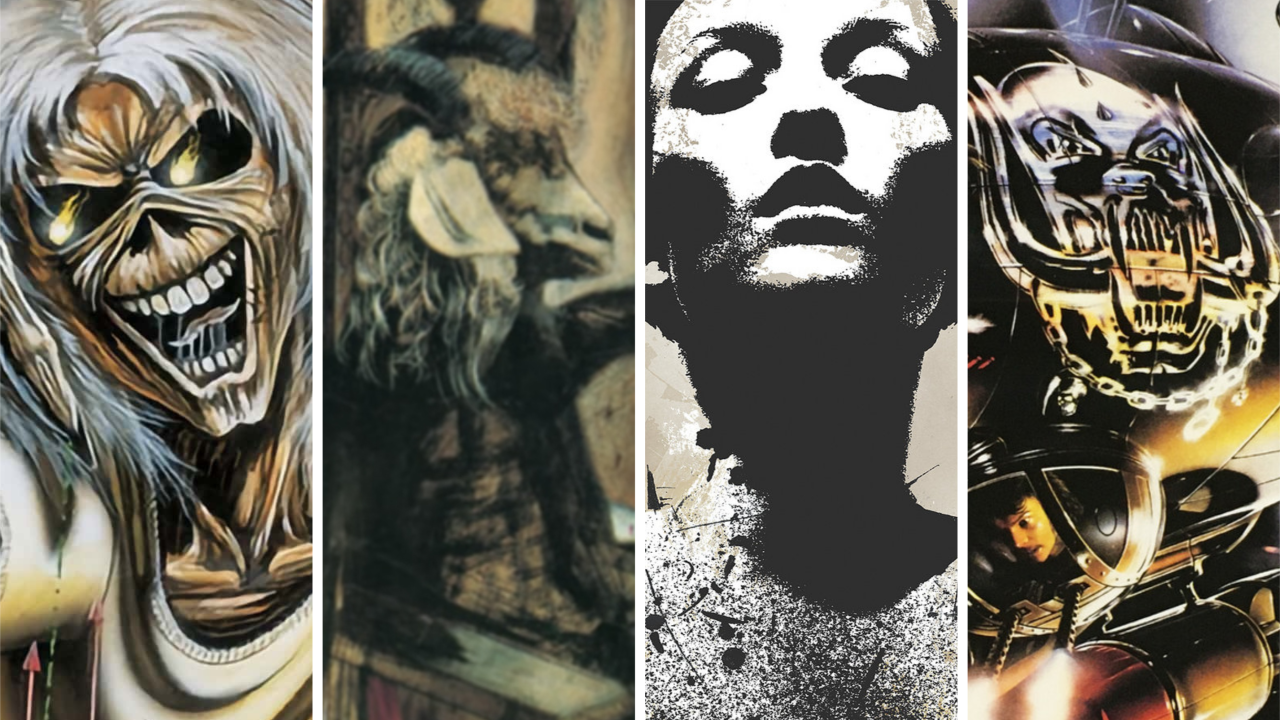Received wisdom dictates that you save the best for last, but a lot of artists just… don’t. The music industry’s always loved frontloading its albums, letting the big, successful singles pop up early to energise and excite you for the sonic journey still to come. Sometimes though, bands play their cards close to their chest until the very end, saving the true extent of their talents for a mind-blowingly grand finale. Below are 10 albums that do just that, with their most excellent song being the last thing you hear.

Iron Maiden – Hallowed Be Thy Name (The Number Of The Beast, 1982)
Iron Maiden’s breakthrough album contains their two most popular songs: the title track and Run To The Hills. However, Hallowed Be Thy Name is when it goes from great to a masterpiece. At seven minutes, this finale ends Bruce Dickinson and the boys’ magnum opus with an ever-building monolith, demonstrating a grandeur that would define them for the remainder of their career. Countless diehards will argue that this is the band’s best moment, and it remains a measuring stick for long-running metal tracks even today.
Slayer – Raining Blood (Reign In Blood, 1986)
No discussion of the greatest metal songs in history is complete without a nod towards Raining Blood. Slayer’s signature track, which is about nothing less than a war between Heaven and Hell, sounds appropriately apocalyptic thanks to those imposingly down-tuned guitars. Then Tom Araya’s agonised screams really make it sound like the underworld’s popped up top for a spell. Angel Of Death is another killer Reign In Blood cut but, in terms of invigorating song craft, this cannot be beat.
Black Sabbath – Into The Void (Master Of Reality, 1971)
Master Of Reality is home to three all-time-excellent Black Sabbath songs in Sweet Leaf, Children Of The Grave and Into The Void. However, the final entry in that trilogy has been named by both James Hetfield and Eddie Van Halen as their favourite Sabbath track. Who are we to argue with them? The stoner staple also boasts not one but two of the greatest Tony Iommi guitar parts, from that strutting opening to the weed-stenched, chord-powered main riff.
Judas Priest – Dissident Aggressor (Sin After Sin, 1977)
On Sin After Sin, Judas Priest were still fledgling in their Metal Godhood, their allegiance to proto-metal progenitors like Led Zeppelin very much audible. However, if any song showcased how far Rob Halford and crew could go, it was Dissident Aggressor. That chord-powered riff and Rob’s ground-quaking falsetto flaunted Priest had all the talents to become a timelessly heavy band. They just needed some sharper production that could resonate through the ages – which they mercifully, finally got on the immortal British Steel three years later.
Motörhead – Bomber (Bomber, 1979)
Bomber, although still top-notch in its own right, often finds itself in the shadow of Motörhead’s more successful Overkill album, which preceded its release by a mere seven months. The title track has since forged its own legacy though. Released as the sole Bomber single in November 1979, it became a permanent fixture of the band’s setlist until Lemmy’s death. Today, it has seven million more Spotify streams than the next-most popular song on the album – pretty irrefutable evidence of a classic.
Opeth – Blackwater Park (Blackwater Park, 2001)
Blackwater Park is one of the most purely-blooded metal cuts that Opeth ever released. Much of this song’s parent album is dedicated to balancing death metal force with melodic maturity, resulting in numbers from the long-running Drapery Falls to the acoustic Harvest. Yet this finale shoots straight for the throat, charging between riffs with only the briefest of atmospheric segues. Meanwhile, Mikael Åkerfeldt exclusively roars his way through. For a 12-minute suite to feel this exciting the entire time is a herculean feat.
Converge – Jane Doe (Jane Doe, 2001)
Before the title track, the songs on Jane Doe clock in between four-and-a-half minutes and 42 seconds. This one is 11 minutes long. Jane Doe is a striking statement of ambition from a band who, over the preceding half-hour, had already tested metalcore to more rabid extremes than it had ever visited before. After the main body of the album signified that Converge had an unbridled new vision for their genre, this finale only telegraphed that fact even more strikingly.
Alice In Chains – Would? (Dirt, 1992)
Three months before Dirt came out, Would? featured on the soundtrack of 1992 rom-com Singles and signalled great things were about to come for Alice In Chains. The track got the band onto the single charts in the UK and Australia for the very first time, before closing an album that is still regarded as their masterpiece. Dirt delves into dark places on entries like Down In A Hole but, with this catchier and concise finale, there’s a feeling of warmth waiting at the end.
Death – The Philosopher (Individual Thought Patterns, 1993)
The Philosopher is inarguably the simplest part of Individual Thought Patterns, and it’s a standout because of it. Following nine songs of technical death metal trailblazing, this single defaults to a more accessible heavy metal gallop and contains the greatest chorus of Death’s discography. “The philosopher! You know so much about nothing at all!” Chuck Schuldiner snarls, delivering a simple hook with a poetic message behind it. Despite closing Individual…, The Philosopher opened Death’s gigs for years to come, before becoming the album’s most-streamed song.
Between The Buried And Me – White Walls (Colors, 2007)
In the mid-2000s, Between The Buried And Me destroyed the constraints of the nascent metalcore and prog scenes. Their songs were a mind-boggling array of riffs and cross-genre weirdness, and no one example summarises their entire outlook like White Walls. For 15 minutes, this Colors closer is a rampage of ideas, stringing together moments of untouchable death metal nastiness while gradually growing more melodic. By the end, those duelling guitar harmonies and solos have made this the most majestic Iron Maiden song that Iron Maiden never wrote.

